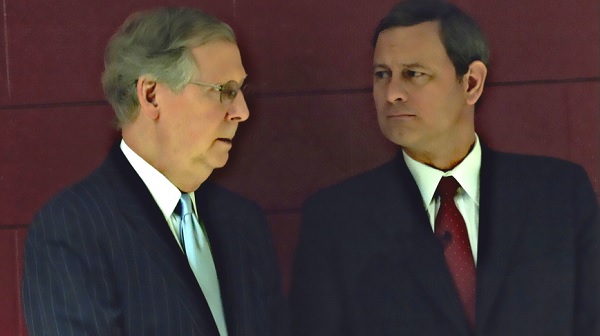
Attorney Scott Pilutik wrestles with the news of the day, from a lawyerly perspective…
A motion ‘in limine’ is a trial motion to limit or exclude certain testimony or evidence, and the judge, in deciding what the jury can hear, considers how relevant that evidence is to the proceeding versus the potential likelihood that the evidence will prejudice the jury.
Impeachments aren’t trials, but I suspect that the rough impeachment equivalent of a motion in limine, in whatever form it takes, will be the key to the impeachment trial, and that the same relevancy vs. prejudice balancing test will guide the Chief Justice when the impeachment inquiry moves over to the Senate and becomes a trial.
The House has already fought over admissibility, the most obvious example being Hunter Biden, whose testimony Adam Schiff found not at all relevant but whom Devin Nunes believes is the only necessary witness. Of course, the Dem majority controlled the inquiry phase and so Biden wasn’t subpoenaed.
But when things move to the Senate, evidence will be addressed very differently. With Mitch McConnell crafting the rules and the Chief Justice presiding, we could still see Hunter Biden. But we could also see Pompeo, Mulvaney, Bolton, and even Pence. And that all depends on the arguments made to Roberts for the inclusion and declusion of those witnesses.
Before returning to the relevancy (also called ‘probative weight’) vs prejudice test, there’s one huge wild card that distinguishes the impeachment from a trial, and that’s that the Senate can overrule the Chief Justice with a simple majority. So even Roberts ruled that Hunter Biden’s testimony can’t possibly be relevant to this proceeding, 53 Republicans can nevertheless vote to make it so.
Accordingly, because there are essentially two distinct impeachment inquiries occurring, one based in fact and one being conducted from Earth Two, the impending evidentiary rulings are kind of everything. What evidence is permitted will control how it’s written up and viewed each night. It’s theoretically possible that the Senate only call Hunter Biden for seven straight days.
But the Senate probably won’t go quite that far, if only because they’ll feel a need to conduct something that can be reasonably passed off as fair. But given how the past week went, it’s really not possible to argue against the relevancy of Pompeo’s, Mulvaney’s, Bolton’s, and even Pence’s testimony (i.e., other witnesses named them, and other docs subsequently emerged), and it’s really difficult to imagine how Hunter Biden’s testimony is remotely relevant. Even if the Bidens were thoroughly and demonstrably corrupt, such would not excuse abuse of office.
So in consideration of these looming questions about who will ultimately testify and/or be compelled to testify, we’re left with a sizeable political dilemma between the Senate majority and John Roberts. And despite that the tension is between “conservatives” (whatever that means anymore), on one side you’ve got Mitch McConnell, who refused to even grant Merrick Garland a hearing because Obama’s term was 80 percent complete, and on the other John Roberts, famously sensitive to appearances and public perceptions of the court’s legitimacy.
I believe Roberts will strive to stick to the book and general legal principles and remain as Switzerland-ish as possible, and provide ample basis for his reasoning to allow the compelled testimony of Trump’s closest advisors and exclude Hunter Biden’s.
The question then becomes whether 50 of 53 senators are comfortable overruling the Chief Justice of the Supreme Court on evidentiary questions that aren’t at all close. Or rather, whether Mitch McConnell can convince nearly his entire caucus to overrule the Chief Justice of the Supreme Court.
Roberts is more than a ceremonial figurehead in these coming proceedings, he’s the implied threat of a conscience, a potential check against McConnell’s basest instincts. Roberts’ concern for the court’s legitimacy has always been a tricky dance among nine justices, but presiding over these hearings alone renders his concern over legitimacy never more apparent and vulnerable.
There’s an interesting legal question about just how prejudice fits into the evidentiary calculus when the jury is the Senate, who are almost all already familiar the evidence, and so can’t really be prejudiced for being further exposed to it in a Senate trial. Or is the jury, in effect, America, since the trial will be public? In which case Hunter Biden’s testimony could possibly be deemed both not relevant and highly prejudicial.






